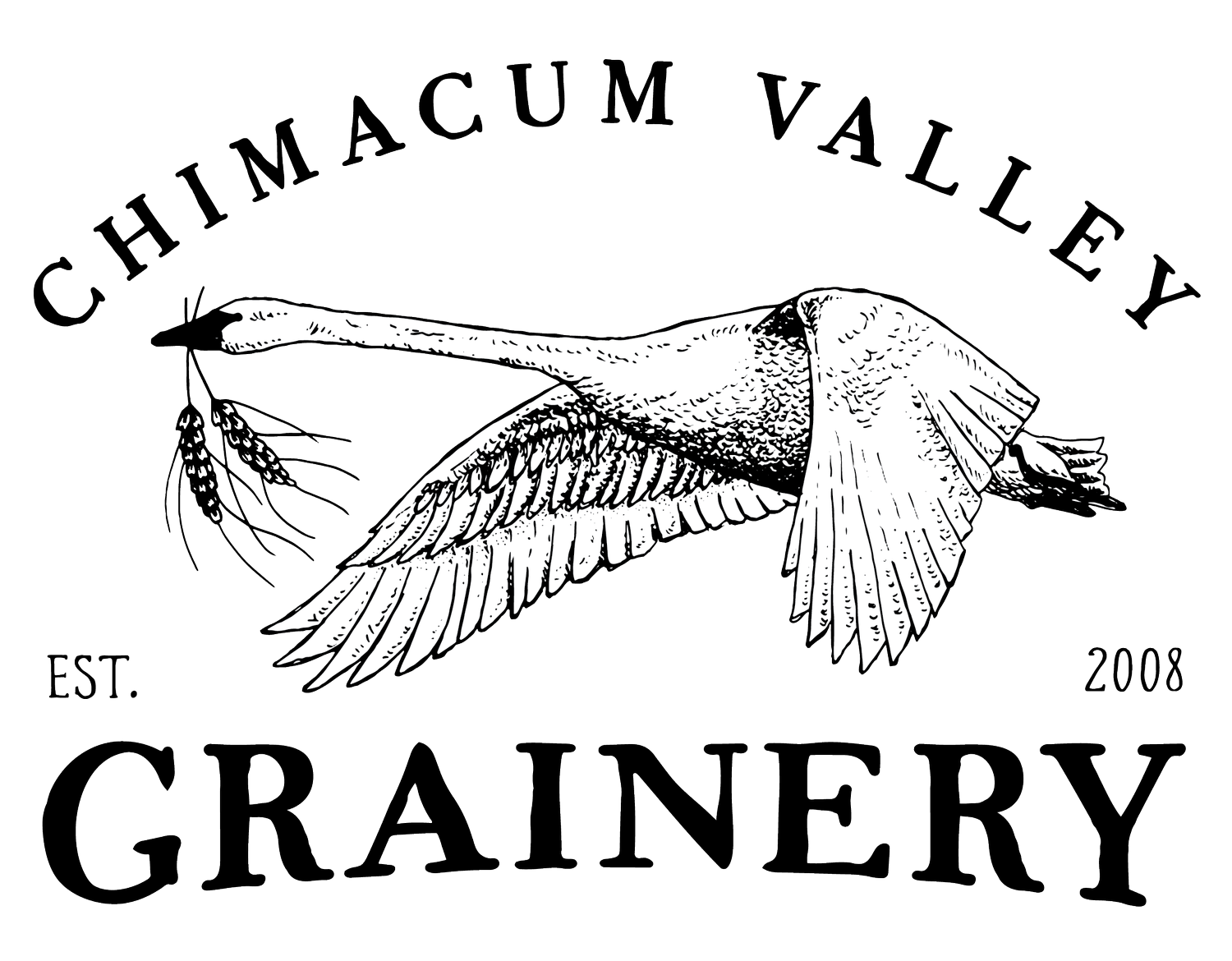on the farm
The Grainery is deeply rooted in Chimacum, operating at a localized scale that has become very rare, and is downright discouraged, in the modern industrial-ag economy. We keep it close! That means our organic grain fields are just a mile up the valley from our stone mill, which is right next to the bakery, malthouse and micro-brewery. While we grow nearly all of our organic grains here in the Valley, we are proud to source from several hard-working organic and regenerative growers from the Dungeness, Skagit and the Columbia River valleys. This ensures some back-up resilience in our supply, and creates a fertile network of like-minded, family-scaled grain growers. Here on our farm, the same small crew is growing, milling, malting, baking and brewing these grains— restoring a heartfelt and deeply lived continuity between the landscape, our community and our sustenance.

FARMING methods
We farm with soil health and human health in mind. We are Certified Organic producers and practice organic and regenerative agricultural approaches-- all of which try to reconcile and balance the pace and scale of modern agriculture with our understanding of ecological principles and our allegiance to earthly interdependence.
In our fields we integrate livestock for rotational grazing, plant biodiverse cover crops, and implement crop rotations to build soil health in the farm ecosystem. We strive to minimize tillage by no-till planting Fall cover crops direct into last year's wheat stubble when conditions allow. We interplant with legumes, such as faba beans, vetch and crimson clover, to fix nitrogen naturally and reduce reliance on external fertilizers. Our goal is to have plants continually growing in our fields, even if that means an understory of weeds to anchor the soil and promote a biologically diverse soilsphere teaming with life energy.
Because we are Certified Organic and grow a diversity of crops, many of which demand a purity of seed, we are tied-in with the use of cultivation as a means to control weeds in our fields, especially vegetable seed crops and cereal crop foundation seed projects. We spend a lot of time thinking about soil health and ways to reduce our impacts. We recognize that ecosystem health is less impacted by the act of tillage than by the application of chemical herbicides and pesticides, and we continue to look for ways to reduce our reliance on cultivation.
Chimacum Valley Grainery joyfully works with the researchers and whole grain advocates from the WSU Bread Lab and the WSU Sustainable Seed Systems Lab to trial and grow out heritage and modern varieties selected for flavor and nutrition and that grow well in western Washington's maritime climate in organic conditions—including spelt, wheat, barley, rye, quinoa and buckwheat.
Along with the diverse range of certified organic grains we grow here in the Chimacum Valley, we occasionally partner with other organic Washington regional family grain farms in the Skagit Valley and the Columbia Basin Washington to fill in the gaps in our production.
At the heart of farming for us is the relationship between those who grow and those who eat, and how we build community health through diversity of many kinds. We see that diversity in our crops fosters stronger yields and more resilient plants that nourish people and the land.
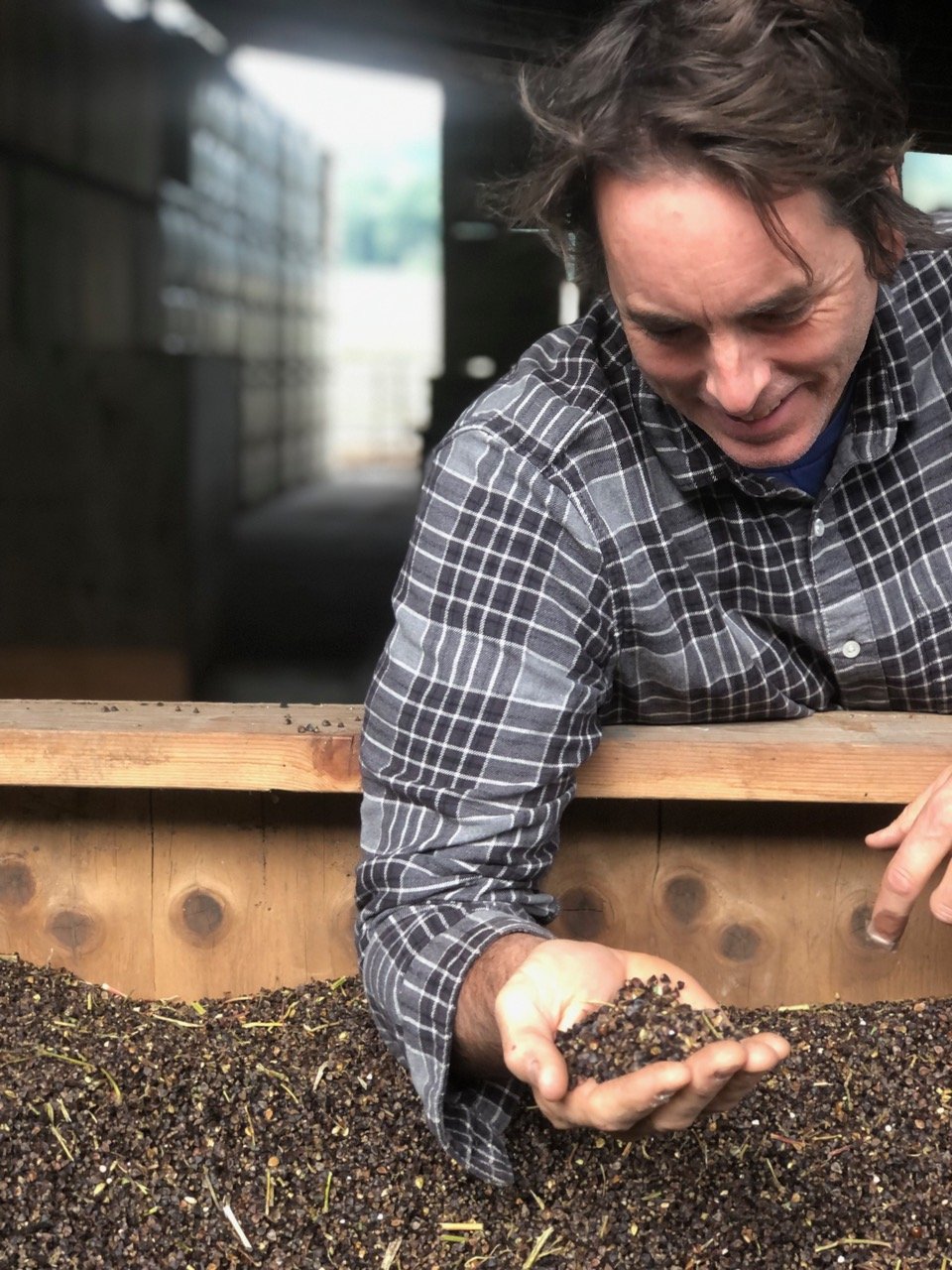

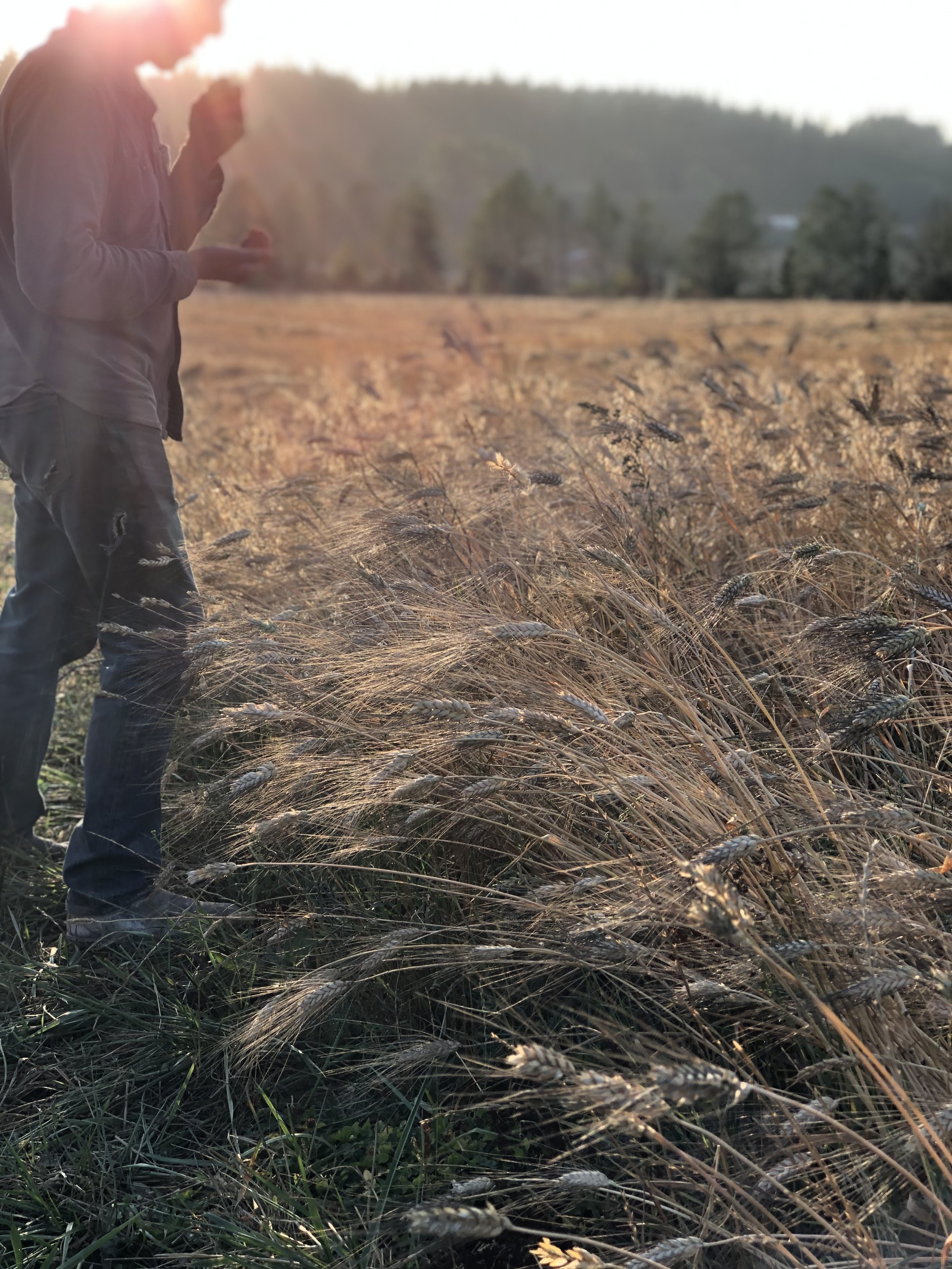
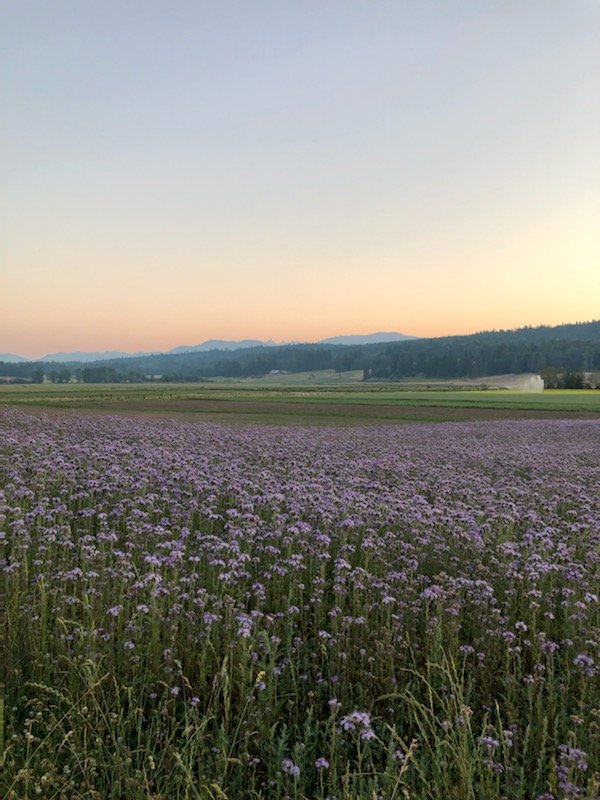
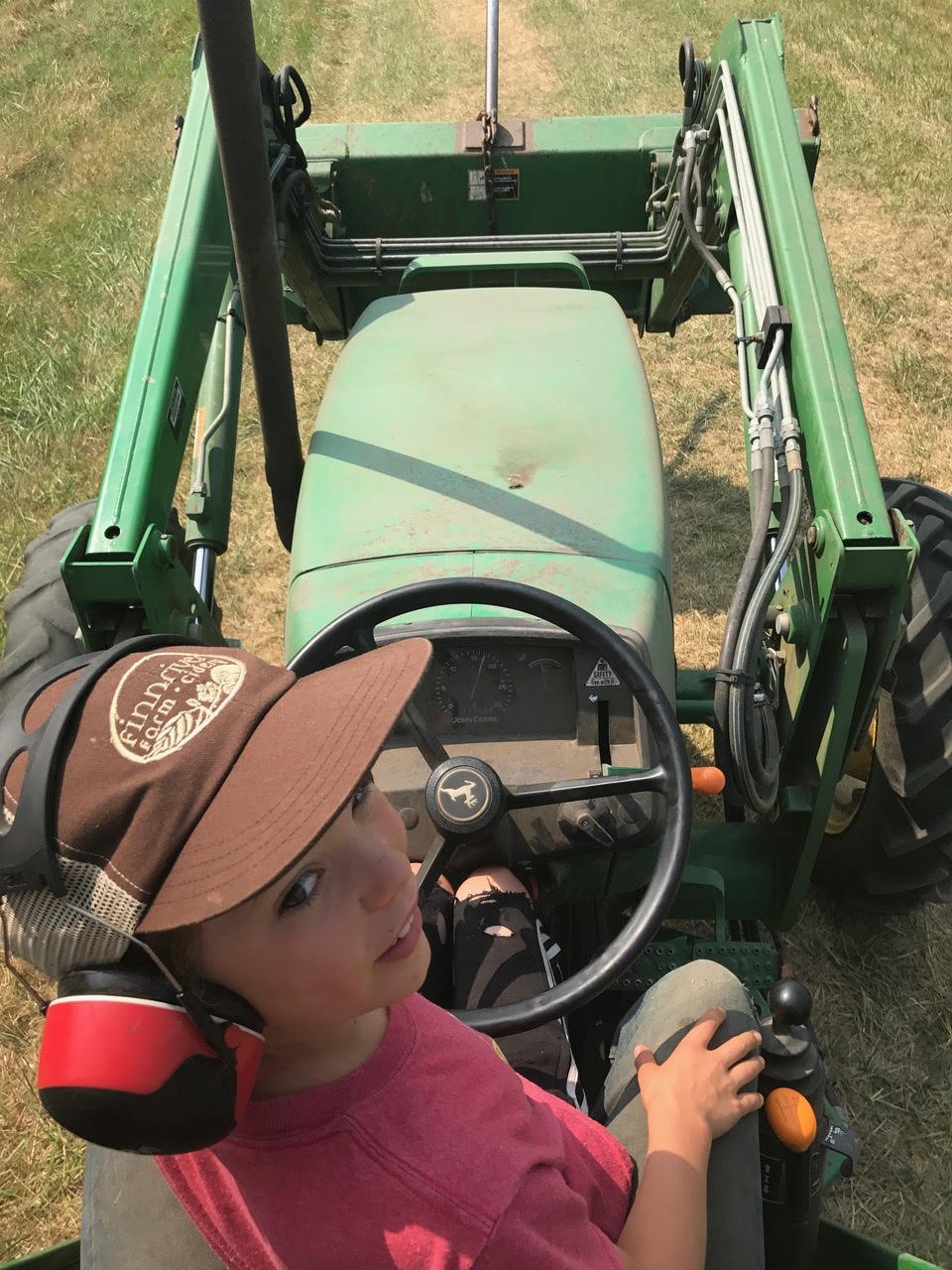
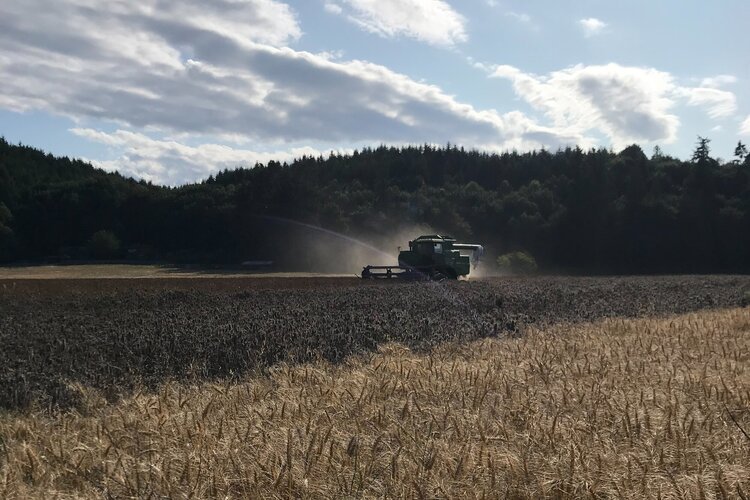

Practices
The Grainery is committed to practicing organic agriculture and to bringing fresh milled and nutrient dense organic flour and baked goods to our human communities.
We farm with soil health and human health in mind and heart. In our fields we integrate livestock, biodiverse cover crops, crop rotations, and the use of legumes to build soil health in our farm ecosystem. We strive to minimize tillage by no-till planting Fall cover crops direct into last years wheat stubble when conditions allow. We interplant with legumes such as vetch and crimson clover where appropriate, and our goal is to have plants growing in our fields even if that means an understory of weeds to anchor the soil and promote a biological diverse soilsphere teaming with life energy.
Because we are Certified Organic and grow a diversity of crops, many of which demand a purity of seed, we are tied-in with the use of cultivation as a means to control weeds in our fields, especially vegetable seed crops and cereal crop foundation seed projects. We spend a lot of time thinking about soil health and ways to reduce our impacts. We recognize that ecosystem health is less impacted by the act of tillage than by the application of herbicides and we continue to look for ways to reduce our reliance on cultivation.
We grow a range of certified organic grains here in the Chimacum Valley on Washington’s Olympic Peninsula and occasionally we partner with other organic regional family grain farms to fill in the gaps in our production. At the heart of farming for me is the relationship between those who grow and all those who eat, and how we build community health through diversity of many kinds. We see that diversity in our crops fosters stronger yields and more resilient plants that nourish people and the land.
We mill flour to order on a traditional stone mill — a beautiful mill made with real granite in Vermont by New American Stone Mills. Milling on a stone mill allows us to grind all parts of the seed together into an aromatic, earthy cream colored flour. Because the stone mill is slow-turning, cooler and generally more gentle on the flour, it is loaded with protein, minerals, fiber, vitamins, antioxidants and healthy oils.
Film credit to PreLoral Productions. Support for this video production came from Jefferson Community Foundation and was administered by EDC Team Jefferson and Tree Ring Consulting.
